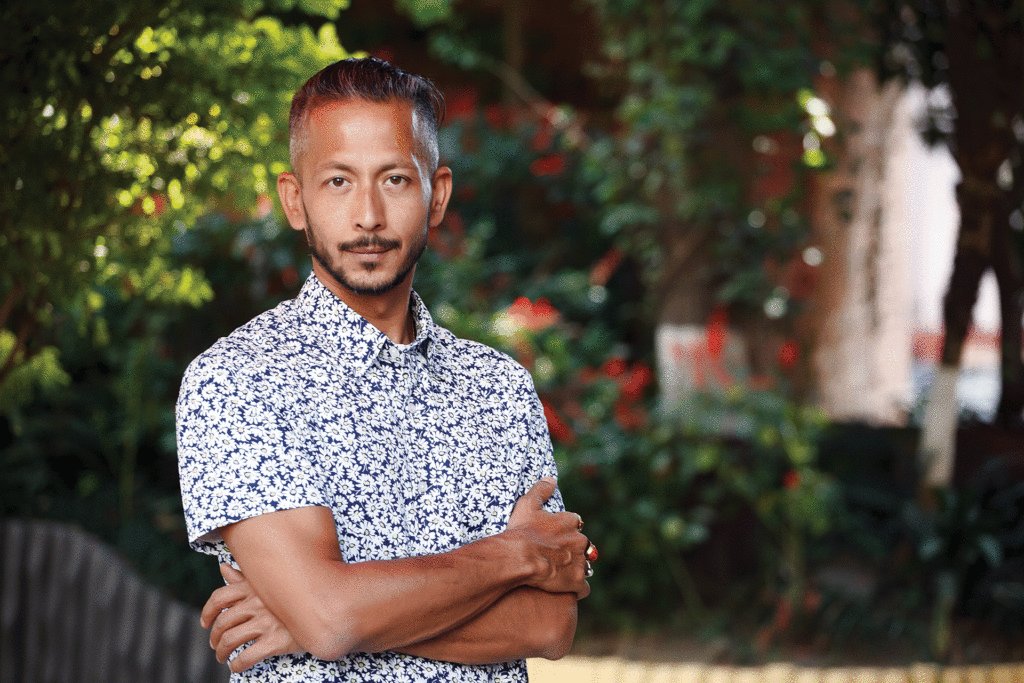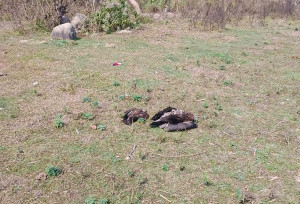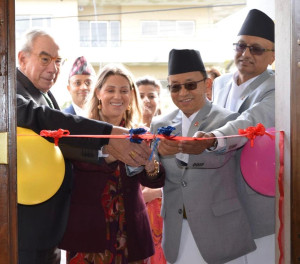Latest from Niranjan Kunwar
Exploring the duality of tradition and modernity
By Niranjan Kunwar Kishor Sharma’s ‘Living in the Mist’ explores how the Rautes resist new ways of life, highlighting the complex relationship between photography, culture and the evolving socio-political landscape of Nepal.
Introducing alternative mediums of instruction to early grade teachers
By Niranjan Kunwar Including the arts in education can provide curricular access to those with diverse learning styles.
Every month, an opportunity to learn about Nepal’s contemporary art movements
By Niranjan Kunwar If we care about raising individuals who are concerned about Nepal’s civil society, the Nepal Art History Discussion Series could prove to be a good starting point.
Dump the old curriculum
By Niranjan Kunwar There is a need to broaden our educational programmes so that students can access alternative methods and spaces for learning.
Making art collection democratic
By Niranjan Kunwar Erina Tamrakar and Asha Dangol’s Himalayan Art Fest follows an inclusive model, which promotes Nepali art to Nepalis.
Schools in Nepal need to teach sexuality in a comprehensive way and set up mechanisms to address sexual abuse in the community
By Niranjan Kunwar While the prevalence of sexual abuse is not new, the investigation of the LMV case by this paper exposed the depth and magnitude of the problem.
Bearing witness
By Niranjan Kunwar Can a pamphlet be a poem, a poem be the story of a murder, the murder be recalled as a ballad and the ballad then become an argument?” — Amar Kanwar.
Quality in education
By Niranjan Kunwar Every citizen strives for a good education but the criteria are elusive. Residents of big cities do not think twice before enrolling children into a private school (easily equating high fees with high standards) but the majority of Nepalis in rural areas do not even have that choice.
A writer’s legacy
By Niranjan Kunwar Uttam Kunwar collapsed inside his bathroom on May 26, 1982, precisely two weeks before I turned one. It was a sudden death, the result of a massive cardiac arrest. Uttam Kunwar was my Thulobuwa, my father’s older brother, and he was only 44 years old. There is a photo of him carrying me but I was too little to remember any of this. As far as I know, I never met him; our paths never crossed. Our existential spheres did not overlap.
Notes from the depths
By Niranjan Kunwar To dive and discover the underneath. To see what hasn’t speared the surface. Chang was from mainland China, soft-spoken, sophisticated. Muy was a Hong Kong native;
Artists and their cities
By Niranjan Kunwar The day after returning from Egypt, I listened to a curator speak about cities. The masterclass was part of Kathmandu Triennale, an international arts festival, scheduled to open in the spring.
Smoke and oil
By Niranjan Kunwar Dusk was approaching as I headed towards Eba Bahi, along a busy street that shoots straight out of Mangal Bazaar towards Lagankhel.
A flower on a lake
By Niranjan Kunwar I’ll be honest. When I first heard about the possibility of visiting Mugu, I was hesitant. It seemed so far away. And the trip wasn’t meant to be leisurely. It wasn’t going to be a week of just walking through the Western hills where I could pause and marvel at the changing landscape. We would be staying in Mugu’s headquarter, Gamgadi, at a lodge, with a team of a dozen. The trip would end with a visit to Rara Lake. But still. A week in Gamgadi seemed like a stretch.
Looking in, looking out
By Niranjan Kunwar I was away from Nepal during the Aarohan Gurukul years. After returning, I learnt about Sunil Pokhrel’s theatre work, mainly through word of mouth. He set up the Gurukul School of Theatre in Purano Baneshwor in 2002, which became quite influential. Students received intensive residential training; they in turn participated in house-full productions. Due to various reasons, the physical space of Aarohan Gurukul was demolished after a nine-year run. I never got to see it. But some of Pokhrel’s students, I heard, clustered and founded their own theatre groups.
A crisis of care
By Niranjan Kunwar Most schools do not have a culture of professional development that pushes teachers’ thinking and exposes them to new ideas




 13.24°C Kathmandu
13.24°C Kathmandu

.jpg&w=400&height=267)
_Online.jpg&w=400&height=267)





















